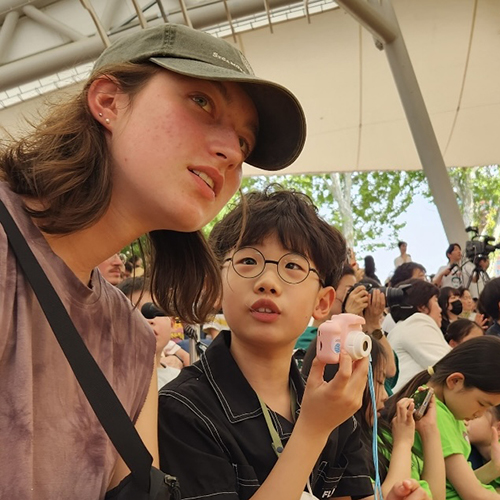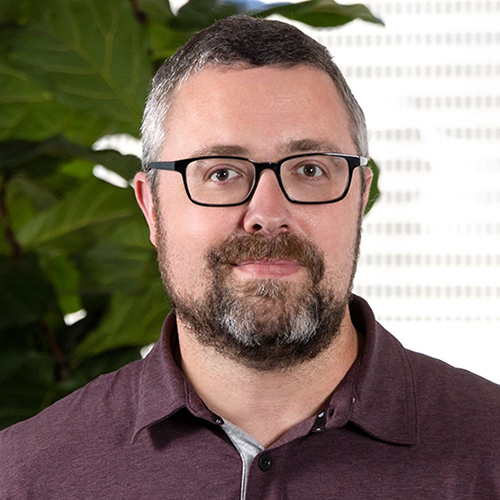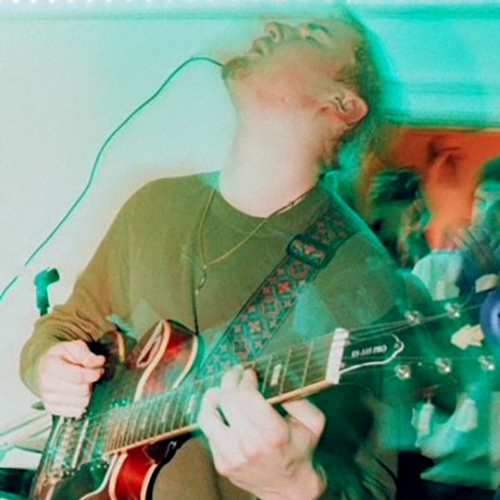Most people return from a mountain hike or beach walk with an appreciation for nature. Langdon Cook returns with ingredients for dinner.
Cook (MFA, Creative Writing, 1994) is an author and experienced forager who has written books on foraging and offers talks and workshops on the topic. “We’ve become so disconnected from our landscape,” he says. “Foraging is a way to get back in touch with what supports us. It’s a great way to introduce people to the outdoors and have them become lifelong stewards.”

Though Cook was always interested in the natural world, he didn’t discover foraging until he moved to the Northwest to pursue a masters in creative writing at the UW. He previously worked as a newspaper reporter and copy editor in the San Francisco Bay area. “The MFA program seemed like a way I could really dig down into the craft of writing,” Cook says.
While at the UW, Cook began exploring wilderness areas, often with friends from the Department of English. They fished the Yakima Canyon, foraged in the Pasayten Wilderness, and harvested clams and oysters on Puget Sound beaches. They even took up squid jigging. “We were broke graduate students,” Cook says, “but we’d have these great parties with gourmet foods we’d gathered around Puget Sound.”
In all my writing, what I’m really interested in is the human element. I’m intrigued by this crossroads where nature, food, and people intersect.
Cook’s focus on living off the land intensified during a nine-month stay in a remote homestead in Oregon’s Rogue River Canyon. By then he’d earned his MFA, spent seven years as an editor at Amazon, married, and had a son. The homestead experience came by way of his wife, poet Martha Silano (MFA, Creative Writing, 1993), who received a residency that included caretaking the remote property. “Neither of us expected to live in a city so long, so this residency seemed a good way to get away from all that,” says Cook. “It was an opportunity to get our three-year-old son into the woods and pass along some of the values we considered important.”
The homestead was two hours from the nearest town by way of a rough logging road. For a steady supply of fresh food, the family foraged regularly in the thousands of acres of wilderness that surrounded them. Cook also got back to writing, which had taken a back seat during his years at Amazon.

“I kept a blog—this was in the very early stages of blogging—with photos and little stories about what we were up to, mostly to let our friends and family know that we were okay,” Cook says. He uploaded the blog at a coffee shop whenever he made the trek into town for groceries.
After returning to Seattle, Cook shaped the blog posts into personal essays. He noticed that many had foraging as a common theme. He also wrote about other foraging adventures, including some during his UW years. The collection of essays became his first book, Fat of the Land: Adventures of a 21st Century Forager.
The book is not a “how to” manual for foraging; it is a memoir infused with a passion for storytelling. “I realized I could use fictional devices in my nonfiction to make it really jump off the page,” Cook says. “The essays are more like stories with great characters.” The book also includes recipes for making the most of foraged ingredients like stinging nettles, fiddlehead ferns, morel mushrooms, and razor clams.
For his second book, which won a 2014 Pacific Northwest Book Award, Cook researched a different aspect of foraging--the colorful lives of West Coast mushroom pickers and buyers. The Mushroom Hunters: On the Trail of an Underground America explores a world that is little known despite being a multi-million dollar industry. Cook’s third book, scheduled for publication in 2017, focuses on wild salmon and features a large cast of characters, from scientists and fisherman to environmental activists and chefs. “In all my writing, what I’m really interested in is the human element,” says Cook. “I’m intrigued by this crossroads where nature, food, and people intersect. And I like to tell a good story.”

When he’s not writing, Cook offers talks and workshops on foraging. (See langdoncook.com.) He finds that many people fear foraged foods, worried they might mistake a poisonous plant for a benign one. “That fear is not misplaced,” Cook says. “You have to learn. And there’s no better way than by going out with someone knowledgeable to see plants and mushrooms firsthand, in their habitat. Photos or illustrations in a book don’t tell the whole story.”
Cook will often take people to Seattle’s Seward Park to point out what’s edible, though he’s quick to note that foraging is illegal in city parks. For those willing to learn, he believes the rewards are tremendous, adding that some of his favorite memories have involved foraging with friends and cooking a feast with the bounty.
“You come home from the woods or the beach tired, sweaty, and muddy, and someone opens a bottle of wine and everybody starts cooking together,” he says. “I love how communal the experience can be. It’s just a great exclamation point after a day of foraging.”
More Stories

Finding Family in Korea Through Language & Plants
Through her love of languages and plants — and some serendipity — UW junior Katie Ruesink connected with a Korean family while studying in Seoul.

Working Toward Responsible AI
Artificial intelligence (AI) is an essential tool at Indeed, a global job-matching and hiring platform. Trey Causey (2009) works to ensure that the company's AI promotes equity and fairness.

Celebrating Contemporary Indigenous Music
Markus Teuton, a musician and citizen of Cherokee Nation, explores contemporary Indigenous music through his academic work and as host of “Indigenous Jazz,” a radio show.